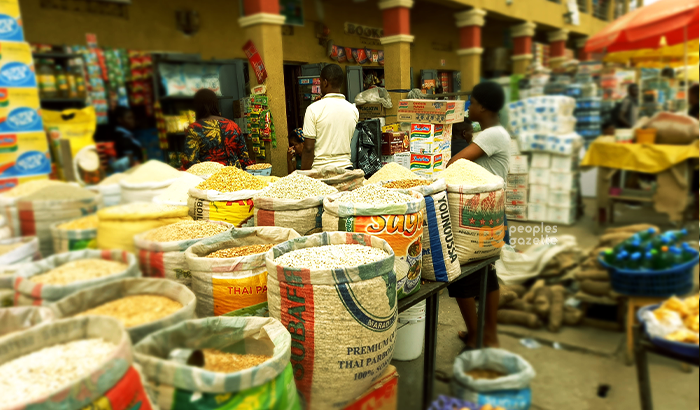Nigeria’s Federal Competition and Consumer Protection Commission (FCCPC) has initiated a campaign to probe the significant rise in food prices observed across various markets in Anambra State.
Concerns have been mounting among consumers grappling with soaring prices of essential food items, prompting the FCCPC to take action.
Led by Mr Jude Akolam, the South-East Zonal Coordinator, FCCPC officials visited Ose Okwaodu, a prominent food market in Onitsha North local government council. The campaign aims to uncover the underlying causes of the price surge and ensure fair market practices, alleviating consumer burdens and fostering a competitive market environment.
Akolam highlighted the federal government’s facilitation of their engagement with traders, emphasising the necessity of these findings for effective planning. He underscored FCCPC’s commitment to safeguarding consumer interests and ensuring value in the marketplace.

The investigation will involve gathering insights from market executives, sellers, and consumers to identify challenges and propose actionable solutions. It seeks to address concerns about escalating food prices attributed to factors such as regional insecurity impacting transportation costs and inadequate infrastructure, including road networks and storage facilities.
Moreover, middlemen have been accused of exacerbating price hikes by exploiting supply-demand dynamics, influencing market prices to the detriment of both farmers and consumers. FCCPC, empowered to enforce regulatory guidelines, aims to scrutinise these claims and hold accountable those manipulating prices.
Collaboration with stakeholders including market associations, farmers’ unions, and security agencies is integral to the investigation. This partnership aims to formulate effective strategies, promote fair trade practices, and stabilise food prices.
In response to the challenges highlighted by traders at Ose Okwaodu market, Chief Ikechukwu Umuanozie, represented by market Secretary Onyejikwe Cypril, urged the federal government’s intervention. He cited insecurity hindering farmers and traders, escalating transportation costs, and compromising food affordability.
Traders expressed concerns over climate change impacting crop yields and extortionate practices at security checkpoints further driving up costs. They advocated for systemic reforms to enhance agricultural productivity and ensure consistent food supply to markets.


